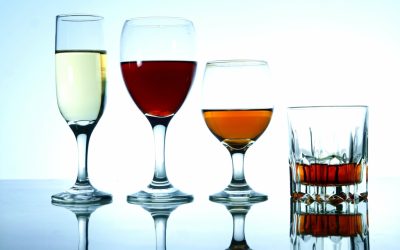Alcohol and blood pressure
When you notice you are struggling with alcohol, seeking medical advice can help you avoid developing an addiction. Rashes, flushing, redness, and itching are some of the most common reactions. Limiting or avoiding alcohol can help, and talking to a healthcare professional can provide more information and treatment options. It can weaken the immune system, damage the surface cells of the lungs and harm the cilia that help to remove foreign particles from the lungs. This can lead to a syndrome called alcoholic lung, which can start to develop in as little as six weeks. Alcohol vapor can also irritate the upper and lower airways, causing inflammation and harm to the cells.
- Acute alcohol consumption mimics the pattern of social drinking, and evidence indicates that even one glass of an alcoholic drink can increase heart rate.
- Impairment of baroreflex sensitivity results in failure to sense the increase in heart rate and maintenance of cardiovascular homeostasis.
- Most of the evidence from this review is relevant to healthy males, as these trials included small numbers of women (126 females compared to 638 males).
- American Addiction Centers (AAC) is committed to delivering original, truthful, accurate, unbiased, and medically current information.
We reviewed available evidence about the short‐term effects of different doses of alcoholic drinks compared to non‐alcoholic drinks on blood pressure and heart rate in adults (≥ 18 years) with both normal and raised blood pressure. Researchers were unable to study in-depth the relationship between age, blood pressure, and alcohol intake. There were risks for misclassifications, and it is possible that some participants changed alcohol consumption amounts during the follow-up time. The study also didn’t look at how different types of alcohol influenced blood pressure.
How we reviewed this article:
You should also decrease your intake of foods high in saturated fat and cholesterol, decrease your sodium intake, cut down on caffeine and alcohol, and stop smoking. This diet and other sensible dietary changes may help you to lose any excess pounds you may be carrying. It can also lead to sleep apnea, which is a disruption in your breathing that can also lead to higher blood pressure. Your doctor may also order a urinalysis to detect other changes or illnesses.
The search was conducted up to March 2019 and resulted in 6869 citations. After de‐duplication and screening of titles and abstracts, we were left with 482 citations for further assessment. We retrieved full‐text articles for those citations and included 32 studies (Figure 1). However, people who are dependent on alcohol or have been misusing alcohol for a long period of time may have difficulty quitting. Cortisol increases the release of catecholamines, which are chemicals in the body that help regulate many processes and help keep the body functioning as it should.
Foppa 1999 published data only
Outpatient programs allow people to remain at home, while inpatient programs provide 24/7 medical supervision. In some cases, alcohol withdrawal symptoms can be severe and lead to a potentially fatal condition called delirium tremens. It can impair nutrient absorption, worsen IBS symptoms, cause dehydration and even lead to internal bleeding in the GI tract. To avoid bowel-related side effects, it is important to stay hydrated when drinking alcohol. If you experience any concerning bowel-related symptoms after alcohol use, please speak with a medical professional. Studies have shown a link between alcohol and hypertension, or high blood pressure.
Increased cortisol levels in regular alcohol drinkers may be due to direct stimulation of adrenocorticotropin hormone or potentiation of corticotropin releasing hormones by arginine vasopressin[67]. The effect of blood pressure may be due to the mineralocorticoid activity of cortisol or catecholamine hypersensitivity[68]. Alcohol stimulates the secretion of corticotrophin releasing hormone in rats[69,70] leading to stimulation of cortisol secretion[71], sympathetic stimulation and hypertension in rats. However this mechanism is implicated more likely in acute alcohol-induced hypertension. First, there was the possibility of undesired bias and imprecision due to imputations of missing statistics. Most of the included studies did not report the standard error (SE)/standard deviation (SD) of the mean difference (MD) for the outcomes of interest.
Cheyne 2004 published data only
Hypertension occurs when the pressure of blood against the artery walls becomes higher than normal. There is evidence that reducing alcohol intake can help lower blood pressure in those suffering from hypertension and even prevent its development. It’s important to drink in moderation and monitor your blood pressure regularly.
Some evidence suggests that reducing alcohol intake in heavy drinkers could help reduce BP, but much more research is required to validate these observations. A lot of people shouldn’t drink at all for specific reasons — family history of alcoholism or heart or liver disease, he says. But if you have no hereditary risk factors, a glass (for women) or up to two (for men) may be justified, how does alcohol affect blood pressure depending on your age. Light-moderate drinking (defined as up to two drinks a day for men, one for women) has shown a subtle drop in blood pressure in some cases. In small amounts, it has been shown to lower blood pressure by 2 to 4 mm Hg (millimeters of mercury) in women. Most experts agree, though, that does not show a significant enough drop to advise drinking for an entire population.
Williams 2004 published and unpublished data
More RCTs are needed to study the effects of low‐dose alcohol to better delineate the dose‐response effects of alcohol on BP and heart rate. RCTs with measurements more than 24 hours after alcohol consumption are needed to see how long the effect of high‐dose acute alcohol consumption lasts. Several studies reported increased sympathetic nervous system activation https://ecosoberhouse.com/ and discharge of sympathetic amines after alcohol consumption[43,48,49]. Alcohol may cause hypertension by affecting the autonomic nervous system[50]. However, alterations in the sympatho-adrenal function that occur during ageing may cause older people to have a different reaction to factors triggering their autonomic system than do younger individuals[51].
- Some studies suggest low amounts of alcohol may provide health benefits.
- A population‐based study showed that the incidence of hypertension is higher in African descendants (36%) than in Caucasians (21%) (Willey 2014).
- Studies have shown a rise in breast cancer risk in women under 50 from drinking alcohol.
- The severity of alcohol withdrawal symptoms depends on the person’s drinking history and how much alcohol they have been drinking.
- That fourth drink at the bar may feel like it’s relaxing you, but it’s actually affecting your body differently than you might think.
- As part of a comprehensive treatment plan for alcohol use disorders, group therapy, individual counseling, family counseling, support group meetings, wellness activities, and medication treatments may be included.
These programs offer tremendous flexibility to assess and address each person’s addiction. Inpatient/residential treatments are generally more intensive for people with more severe symptoms of addiction and dependence. These treatments offer around-the-clock care administered by a team of professionals. To maintain a safe environment for the individual, they will initially live at the treatment facility and have limited contact with people outside the center.
Kawano 1992 published data only
Over time, high blood pressure (hypertension) puts strain on the heart muscle and can lead to cardiovascular disease (CVD), which increases your risk of heart attack and stroke. Another non-pharmacological prevention and treatment of alcohol-induced hypertension is physical conditioning or exercise training. There is a physiological basis for effect of physical conditioning on chronic alcohol-induced hypertension in a rat model.

There is a hereditary role in developing alcohol dependence, but an alcohol addiction gene has never been isolated. Having a parent who is an alcoholic makes you four times more likely to be one yourself, per the American Academy of Child and Adolescent Psychiatry.Environmental factors are part of the mix, too. Growing up in a household where alcohol is prevalent increases your risk of alcoholism. Your involvement with peers as you grow up and the age at which you begin drinking also contribute. People who drink before age 15 are four times more likely to become addicted to alcohol later in life. Several factors can contribute to the development of alcohol abuse, including genetics, environment and mental health.
Comments Off on Alcohol and blood pressure

